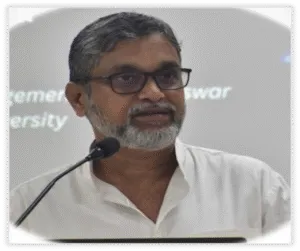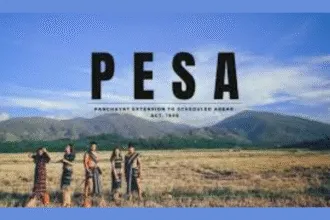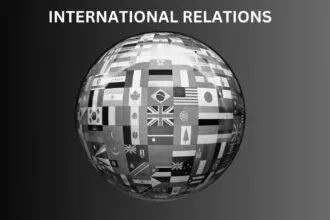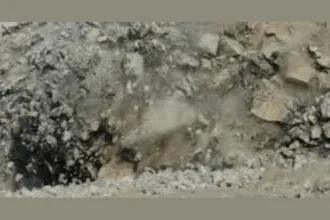In the wake of the devastating Air India plane crash on June 12, Tata Sons—the owner of Air India—announced a compensation of ₹1 crore for the families of each deceased passenger. The people’s response was prompt, and many hailed the gesture as compassionate. However, when powerful corporations move quickly during crises, it’s worth asking: Is this true compassion or a carefully calculated corporate call?
The uncomfortable truth is that corporate history is replete with examples wherein compensation by large corporations is often less about compassion. Such decisions are mostly made to manage public opinion, legal outcomes, and financial exposure. For grieving families, understanding the real intent of such calculated responses can be extremely difficult.
Compensation as Corporate Strategy: A Common Practice
From the Bhopal disaster to Boeing’s tragedies, corporations worldwide—across sectors—have demonstrated that compensation is often a tool for risk mitigation and brand protection.
One of the world’s worst industrial disasters, the 1984 Bhopal gas leak, claimed thousands of lives and left many more with chronic health conditions. In 1989, the Union Carbide, the company behind the tragedy, settled with the Indian government for $470 million—without admitting guilt and with provisions shielding its parent company from further legal damages. As recently as 2023, a petition before the Supreme Court argued that the original settlement underestimated the number of victims and long-term health consequences. Regrettably, the Honorable Supreme Court dismissed the petition for additional compensation.
Similarly, Boeing agreed to pay $1.1 billion to settle a U.S. Department of Justice investigation into two fatal 737 Max crashes in 2018 and 2019, which killed 346 people. The settlement allowed Boeing to avoid a criminal fraud trial. A lawyer representing families of the victims called the deal “morally repugnant,” hinting at the misuse of corporate power.
In 2006, 13 tribal protestors were killed in police firing at Tata Steel’s proposed plant site in Kalinganagar, Odisha. Tata Steel promptly announced compensation, jobs, and development measures. Even this response was strategically aimed at defusing opposition, restarting the stalled project, and protecting Tata’s image as an ethical industrial leader.
Air India: Compassion or Corporate Calculation?
Given the common practice of using compensation as a corporate strategy, Tata Sons compensation appears less like an act of compassion and more like a carefully designed corporate decision. Financially, it will have a negligible impact on the company. According to Tata Sons’ annual report, the company’s revenue grew by 25% in FY 2024 to ₹43,893 crore, with a 57% increase in profit, totaling ₹34,654 crore. The proposed dividend outflow is ₹1,414.51 crore—double that of the previous year. Since Tata Sons is a privately held company, the entire dividend will be received by Tata Trusts, a few Tata Group companies, and select individuals. While the compensation announced by Tata Sons may appear substantial, the total payout of ₹300 crore—assuming 300 victims—would amount to less than 1% of the company’s annual profit. Moreover, a substantial portion of the compensation is likely to be recovered through insurance, minimizing the cost of gesture. Air India itself reported revenues exceeding ₹60,000 crore in FY 2024, making the payout less than 0.5% of its earnings. In fact, if Tata Sons pays the compensation, there will be no effect on the financial position of Air India.
Though Tata Sons’ compensation may seem timely and generous from the viewpoint of individual victims, the underlying motive seems to be aligned with strategy: to reduce public opposition, gain goodwill and mitigate legal problems. And in this corporate game, the devasted families struggle to assert their rights.
Class Action Suits to Allay Corporate Power
Corporations often take advantage of individuals’ vulnerability. Take the case of the 2010 Air India crash in Mangalore, which killed 158 passengers. Initially, the families were offered inconsistent and inadequate compensation. Only after the Kerala High Court intervened did the airline offer ₹75 lakh per family. Yet, Air India, despite being a central government company, appealed the decision, prolonging the litigation and forcing families to fight individually for years.
This underlines the importance of class action suits to counterbalance corporate power. Class action suits allow victims to pool resources, gain legal strength, and present a unified challenge that corporations cannot easily sideline. So, if families of victims accept Tata Sons compensation without challenging, the company benefits and also could limit the legal scope for future collective action.
Going forward
It is time for the families of the victims to come together and fight for their rights. However, it may be difficult for them to organize such efforts on their own. As activist and economist David Korten aptly put it:
“The task ahead is to transform a world ruled by corporations dedicated to the love of money to a world ruled by people dedicated to the love of life.”
In that pursuit, civil society organisations, the media, and intellectuals must come forward and extend their support in countering the corporate strategies designed to fragment and weaken individual bargaining power.
Let justice prevail over corporate power.
DV Ramana
An ordinary citizen of India

Professor, Xavier Institute of Management, XIM University, Bhubaneswar
Comments
0 comments






